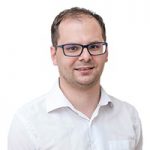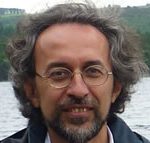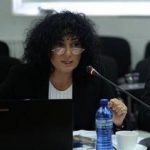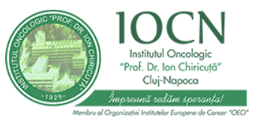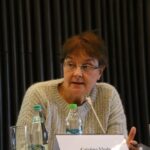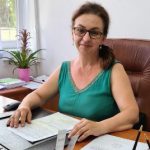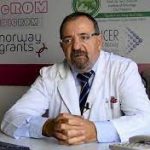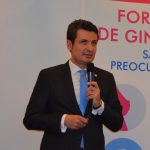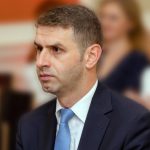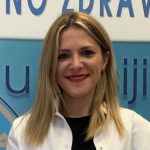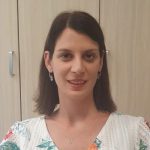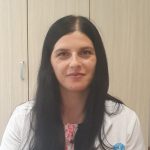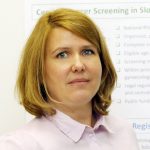IPH MNE, Zdravstvena Ustanova Institut Za Javno Zdravlje Podgorica
Organized colorectal cancer screening programme has been implemented in Montenegro in 2013 in accordance with the European guidelines for quality assurance in colorectal cancer screening and diagnosis. For the starting year not all of the municipalities and not the entire age group were included for participation, but the very next year it became National Programme, meaning it was implemented in each of the 25 municipalities. Starting eligible age in 2013 was 60-64 years and it was extended with every next year, until 2018 when whole target group: 50-74 years, was enrolled. Target group has been defined as population aged 50 to 74 years registered in Health Insurance Fund of Montenegro (as we did not have connection to population registry, this was the most comprehensive way of covering target population). Invitations for screening are made by phone through primary health care centers and GPs (“chosen doctors”). Questionnaires are fulfilled with GPs in order to exclude not eligible participants. iFOBT (Immunochemical Fecal Occult Blood Test) is used as primary screening test followed by colonoscopy if its result is positive. Colonoscopies are performed mostly in Clinical Centre of Montenegro and meljine Hospital. Screening interval has been set for 2 years. IPH coordinates all activities in the screening programme, as well as monitoring and evaluation with annual reporting to all stakeholders.
In the period of six years 532 cases of adenomas were found and 48 colorectal cancers.
In EU-TOPIA-EAST project, Montenegro team is involved in the implementation of Work package 7, through which we expect to increase population coverage by linking system to population registry, and to review national guidelines and protocols. We also plan to upgrade existing IT system and raise screening capacities in northern part of our country through establishing a new colonoscopy center, education of health workers, especially endoscopists and pathologists.
Through improvement of health literacy, media campaign and social mobilization, we have to work on raising the awareness of the population about the importance of detecting cancer at an early stage of the disease when it is possible to cure it.
The year 2022 marks the 100th anniversary of the founding of the Institute of Public Health of Montenegro.
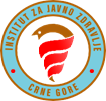
Ivana Nikčević Kovačević
Ivana Nikčević Kovačević is an epidemiologist, PhD student and local coordinator in Montenegro for the EU-TOPIA-EAST project. She works in the National Institute for Public Health in the Cancer Screening Department, and she participated in the process of implementation of the national organized cancer screening programs (cervical, breast and colorectal). Ivana is actively involved in monitoring, evaluation, analysis and reporting from the cancer screening programs. She is preparing evidenced based materials for improvements and resolving obstacles in the conducting screening programs. Her everyday job includes sharing information and education of health care providers, as well as raising awareness of the population on importance of participating in the cancer screening programs.
Milica Stanišić

Milica Stanišić works in the Institute of Public Health Montenegro as Acting Assistant Director for Medical and Public Health Issues, and she is Director of the Regional Health Development Centre on NCDs (SEEHN). Milica was involved in Developing National colorectal cancer screening programme adaptation to Montenegrin population specific needs and situation (algorithm, steps, quality indicators, and respective documents) and implementation of the programme (first national screening programme in Montenegro), as well as adapting and implementing health information system supporting the process in order to have adequate monitoring and ease the evaluation in 2013. Her skills include: deep health system understanding (organization, institutional network and functioning, resources’ distribution – human, financial, infrastructure etc.), as well as collecting, analyzing and ultimately using data to inform evidence-based public health policy development. She has experience in health analysis of epidemiological situation (in various public health areas) and health needs assessment regarding the major public health issues in the context of planning and delivering health care to population.
Jovana Vuković-Leković
Jovana Vuković-Leković works as an epidemiologist at the Center for Control and Prevention of Non-Communicable Diseases, Department of Screening. She is currently working on her PhD. Since the beginning of her employment (2013), she has been dealing with screening programs, which are conducted in Montenegro (early detection and prevention of colon, breast, cervical cancer). She was a member of the national working group in charge of designing (the best possible screening model, algorithm, steps applied in Montenegro) and implementing a screening program for early detection of cervical and breast cancer. She is involved in the managing unit for the roll-out process of all three national screening programmes.
Adrijana Vujović
Adrijana Vujović has worked in Institute of Public Health Montenegro since 2013. Adrijana is an epidemiologist. She is a member of team in the screening department in the Centre for Non-Communicable Diseases. She is involved in the managing unit for the roll-out process of national screening programmes throughout the whole country.













